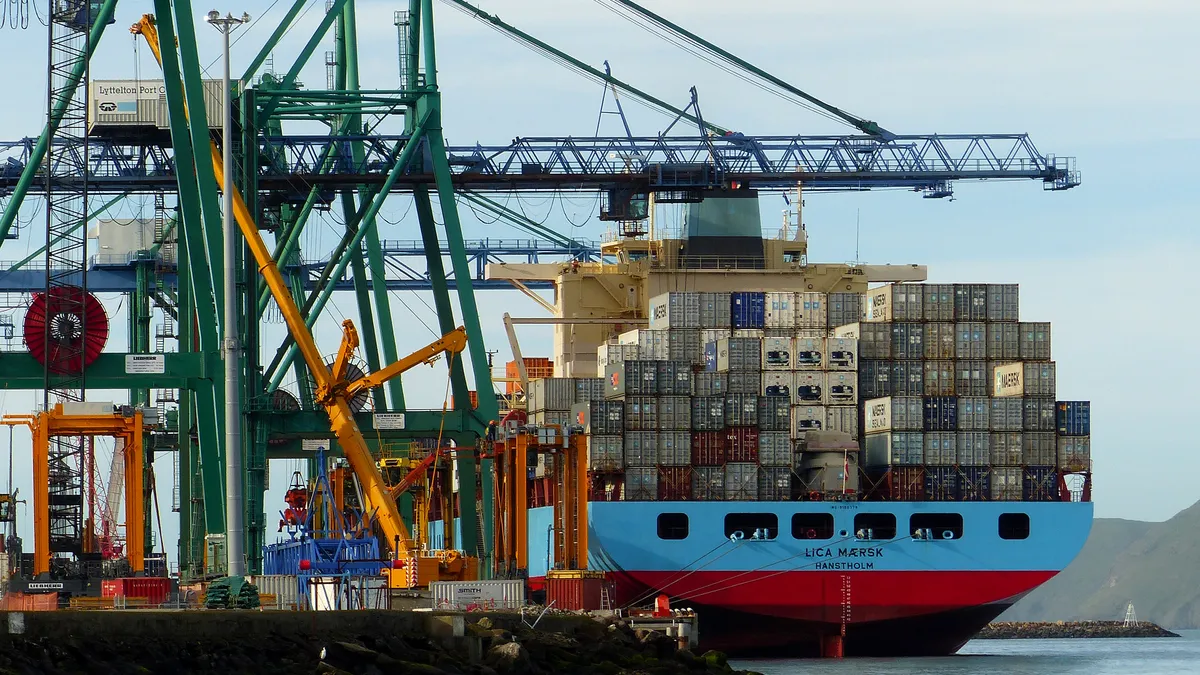Dive Brief:
- A.P. Moller-Maersk's recent argument that digital transactions could help remedy low prices and supply imbalance in the shipping industry is more wishful thinking than economic reality, Lloyd's Loading List reported Wednesday.
- Increased digitization will aid in clarifying placements, however, which caused a lose-lose situation for shippers and shipping lines alike due to no-show bookings which drove broken contracts, blank sailings and schedule alterations.
- An average of 86% of shippers believe that digitization will increase efficiency within the industry, and as 50% of the workforce will be millennials by 2020, shipper expectations for instant processes are growing.
Dive Insight:
Digitization may not help break ships any faster, but technology's promise to improve capacity utilization should help shipping lines realize measure capacity need based on full-booking data rather than vessels needed to operate a set route of schedules. While improved utilization will only exacerbate the shipping industry's available supply in the short-term, the long-term benefits will allow greater line efficiency.
The shipping alliances model already attempts to correct this problem as slot-exchanges and vessel sharing agreements help individual shippers transport goods despite the availability of a specific carrier's ship (as long as they are in an agreement).
Now, A.P. Moller-Maersk is adopting digital technology to ensure freight forwarders, shippers and vessels can track and communicate capacity needs. The Danish line recently launched an app allowing shippers to view routes or route changes, receive push notifications and schedule confirmation. Similarly, the ports of Los Angeles, Long Beach, and New York/ New Jersey will soon participate in a national supply chain information-sharing portal to decrease inefficiencies.
These efficiency efforts, combined with shipping lines' continued scrapping, rising gas prices are all aimed at returning container shipping rates to sustainable levels while improving individual competitiveness.












